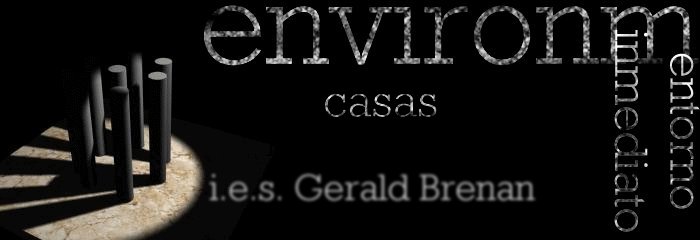

El acercamiento a
la idea de una nuena Europa sin fronteras, conlleva dejar a un lado los
conceptos del nacionalismo en un intento por encontrar una identidad común
sin perder los orígenes, sin renunciar a las raices. Partiendo de
esta premisa, el conocimiento e investigación del entorno más
inmediato, del ámbito directo, la familia, los amigos, el Instituto,
el medio físico sirve como punto de partida para contrastar lo conocido
con otros entornos no tan inmediatos, otras culturas tan cercanas y a la
vez tan lejanas, y constatar de este modo que todos somos iguales porque
todos somos diferentes, huyendo del tópico, de las ideas preconcebidas,
de los prejuicios, el conocimiento y la toma de conciencia de la diferencia
debería ayudarnos a evitar roces en lo que se pretende una nueva
sociedad pluricultural y multiracial, desarrollada por diferentes paises
y diferentes personas.
Solo lo desconocido nos atemoriza, y desde este enfoque hemos
intentado trabajar, extrayendo algunas conclusiones acerca de las
dificultades encontradas y las soluciones aportadas.
Constatar por un lado la dificultad generalizada por intentar
concretizar estos conceptos generales y traducirlos a actividades concretas
y específicas, comunes no solo a las diferentes materias, sino también
a los diferentes miembros participantes en el proyecto.
Los problemas encontrados en las vías de comunicación
dada la falta de infraestructura inicial y de experiencia para ello (comunicación
vía Internet, e-mail...) así como los malentendidos producidos
por el uso de una lengua no nativa para la mayoría de los miembros.
A pesar de estas dificultades, enriquecedoras en tanto que han
abierto nuevos caminos y estrategias, las conclusiones finales son básicamente
positivas y a la vista está, trabajos que presentan, a nuestro juicio,
un nivel suficientemente satisfactorio y enriquecedor, aportando en estos
resultados originalidad y variedad a planteamientos demasiados usuales.
La habitación de cada alumno fue el punto de partida de los
trabajos.
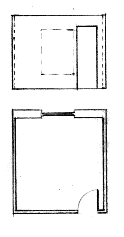
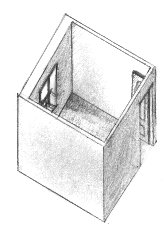
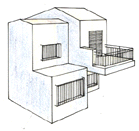
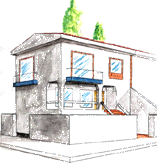
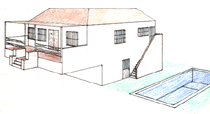
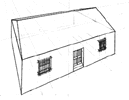
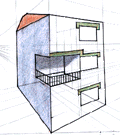
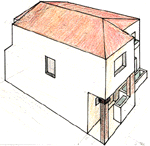
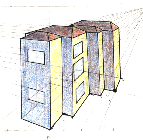

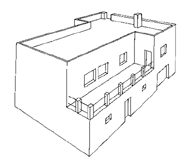
Closing up to the idea of a borderless Europe entails leaving aside nationalistic concepts in a try to find a common identity without losing the origins, without denying one’s roots. As from here, the knowledge and research of our most immediately close environment, the family, friends, Secondary school, the physic environment, are all the starting point to contrast what is known with other environments not so close, other cultures so near but at the same time so distant, and verify in this way that we are all equal because we are all different to one another, running away from the topics, from preconceived ideas, from prejudices, knowledge and awareness of the difference should help us avoid clashing in what is aimed at as pluricultural and multiracial society, developed by different countries and people.
Only what is unknown to us scares us, and from this point of view we
have tried to work, extracting some conclusions about the difficulties
encountered and the solutions given.
It is worth pointing out the general difficulty in trying to specify
these general concepts and take them into specific activities, common not
only to the different subjects but also to the different participants in
this project.
The problems arising in the means of communication due to the lack of
an initial infrastructure and experience in this regard (Internet, e-mail,
. . . ) as well as the misunderstandings occurring because of the use of
a language not being the first language of the majority of the participants.
Despite these difficulties, nevertheless useful as they have opened
new ways and strategies, the final conclusions are basically positive and
it is obvious seeing the reports presented, which show, in our understanding,
a sufficiently satisfactory and enriching level, giving in these
results originality and variety to layouts too usual.
The students’ bedroom was the starting point for the studies.
Subsequently, the object of the study was widened to broader areas to
that of the house.